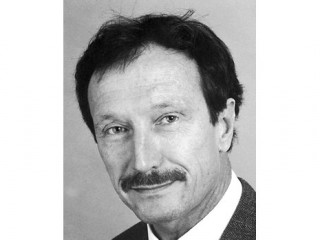
Rolf M. Zinkernagel biography
Date of birth : 1944-01-06
Date of death : -
Birthplace : Riehen, Switzerland
Nationality : Swiss
Category : Science and Technology
Last modified : 2011-09-22
Credited as : immunologist, pathologist, Nobel Prize for Physiology or Medicine
0 votes so far
Rolf M. Zinkernagel is a Swiss immunologist specializing in tropical diseases. He spent two and a half years in the 1970s on a fellowship at Canberra's Australian National University, where he worked alongside veterinarian Peter C. Doherty and discovered how immune T-cells recognize virus-infected host cells. For this work, Zinkernagel and Doherty were jointly awarded the Nobel Prize for Medicine or Physiology in 1996.
In their experiments, Zinkernagel and Doherty found that T cells from an infected mouse would destroy virus-infected cells from another mouse only if both mice belonged to a genetically identical strain. The T cells would ignore virus-infected cells taken from a different strain of laboratory mice. Further research showed that in order to kill infected cells, T cells must recognize two major signals on the surface of an infected cell: those of the infecting virus and certain "self" molecules called major histocompatibility complex (MHC) antigens, which tell the immune system that a particular cell belongs to one's own body. In the experiment, the T cells from one mouse strain could not recognize MHC antigens from another on the infected cells, so no immune response occurred. The discovery that T cells must simultaneously recognize both self and foreign molecules on a cell in order to react against it formed the basis for a new understanding of the general mechanisms of cellular immunity.
After leaving the Curtin School in 1975, Zinkernagel served as an associate professor (1979-88) and full professor (1988-92) at the University of Zürich and became head of the university's Institute of Experimental Immunology in 1992. In 1995 Zinkernagel received an Albert Lasker Basic Medical Research Award for his studies on T-cell recognition of self and foreign molecules. His interests in developing drugs that modulate immune function led to his election to the board of directors of Novartis AG in 1999 and to the board of directors of Cytos Biotechnology AG from 2000 to 2003.
Awards:
Lasker Award 1995
Nobel Prize for Medicine 1996 (with Peter C. Doherty)
Member of the Board of Novartis (1999-)
















